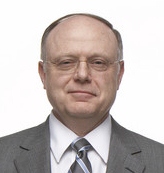Everyone who keeps even one eye on the drug industry knows Pfizer ($PFE) is bird-dogging after deals. Now, it has bagged one--somewhere in left field. The pharma giant has snapped up Hospira ($HSP), an injectables specialist, for $90 per share, or some $15 billion, plus debt assumption.
It's an obvious play to build up Pfizer's established products division, created in a three-way operational split at the beginning of 2014. The restructuring paved the way for an eventual unit sale or spinoff, and analysts' money has been on Global Established Products as a first choice. The unit brought in $25.1 billion last year, but with generic erosion hitting some of the older branded meds in that portfolio, fourth-quarter sales were down 7%.
Hospira has a pipeline of biosimilars, including a biosimilar of Johnson & Johnson's ($JNJ) Remicade approved in Europe and as applied for approval of a biosimilar in the U.S. Adding to its own biosimilars pipeline beefs up Pfizer's established products business in an up-and-coming area. That can't hurt with potential investors in a sale or spinoff. The deal seems "highly complementary at first blush," said Mark Schoenebaum, an analyst with Evercore ISI.
Hospira also boasts a broad portfolio of generic injectable drugs, many of which are in high demand. But the company has been scrambling to address persistent manufacturing problems. After its Rocky Mount, NC, facility failed inspections and quality problems forced a series of recalls, Hospira spent more than $375 million to revamp its U.S. manufacturing network. But it has since run afoul of the FDA at two plants in India--both recently acquired, to help lower manufacturing costs--and another in Australia.
Pfizer says it can squeeze $800 million in annual costs out of the combined company by 2018; we'll have to wait and see whether that involves manufacturing shutdowns or cuts.
Hospira's biosimilars business is a separate pursuit from its generic injectables; it teamed up with South Korea's Celltrion early on in the biosimilar deal wave. Hospira markets biosimilars of two top Amgen ($AMGN) meds, Retacrit and Nivestim, outside the U.S., and in 2013 the partners won European approval for their Remicade biosimilar, the first monoclonal antibody knockoff to win a nod. Now launched in a few of the EU's smaller markets, Hospira's Inflectra brand is grabbing market share from the Johnson & Johnson ($JNJ) original, used to treat inflammatory disorders such as rheumatoid arthritis, analysts say.
"Biosimilars are a big part of the Hospira bull thesis and we do expect some success of Inflectra in the EU," Bernstein analyst Ronny Gal said in a note to investors Wednesday. The firm expects $330 million in sales by 2020 for the product.
 |
| Ian Read |
In the meantime, CEO Ian Read figures Hospira can immediately add to sales--something Pfizer obviously needs as big products continue to fall off patent. "The proposed acquisition of Hospira demonstrates our commitment to prudently deploy capital to create shareholder value and deliver incremental revenue and [earnings per share] growth in the near-term," Read said in a statement.
The Hospira buy is Pfizer's first since it failed to snag AstraZeneca ($AZN) in a proposed megamerger last year. Since then, the company has reportedly looked at Actavis ($ACT), which has been on an acquisition spree of its own, and Teva Pharmaceutical ($TEVA), among others.
- read the Pfizer release
Special Reports: The top 10 patent losses of 2015 - Zyvox | The top 10 pharma companies by 2013 revenue - Pfizer